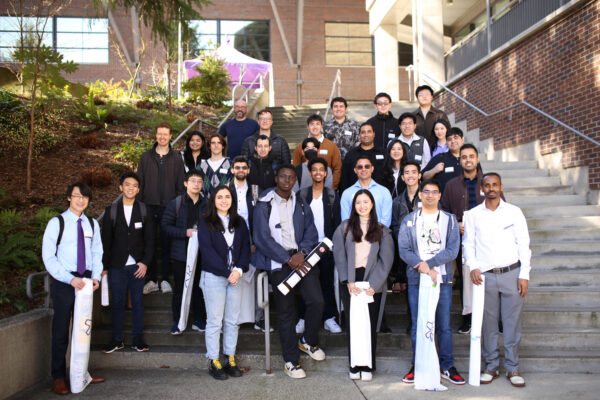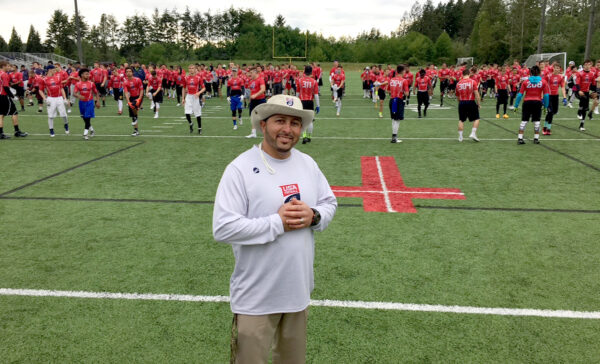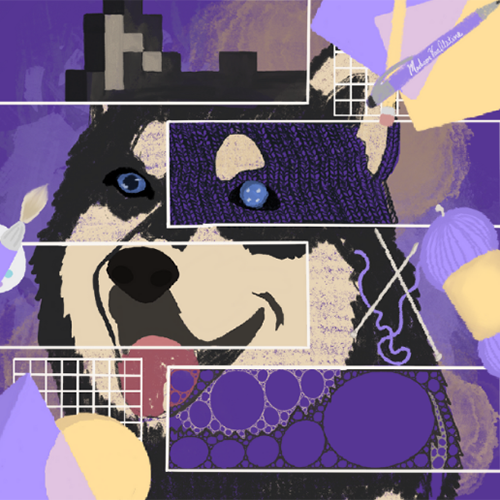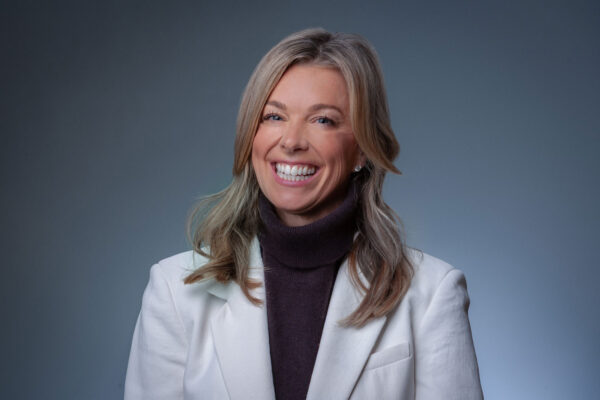Vital to an undergraduate experience at the University of Washington Bothell are the multitude of opportunities for students to apply to the real world what they are learning in the classroom.
The School of STEM showcases work each quarter in an Undergraduate Capstone & Symposium event where students studying biological and physical sciences, engineering, mathematics, and computing and software systems share their research and projects through oral and poster presentations.
Marking the end of winter quarter 2024, presentations ranged from internships with industry partners such as Amazon to app development and design research.
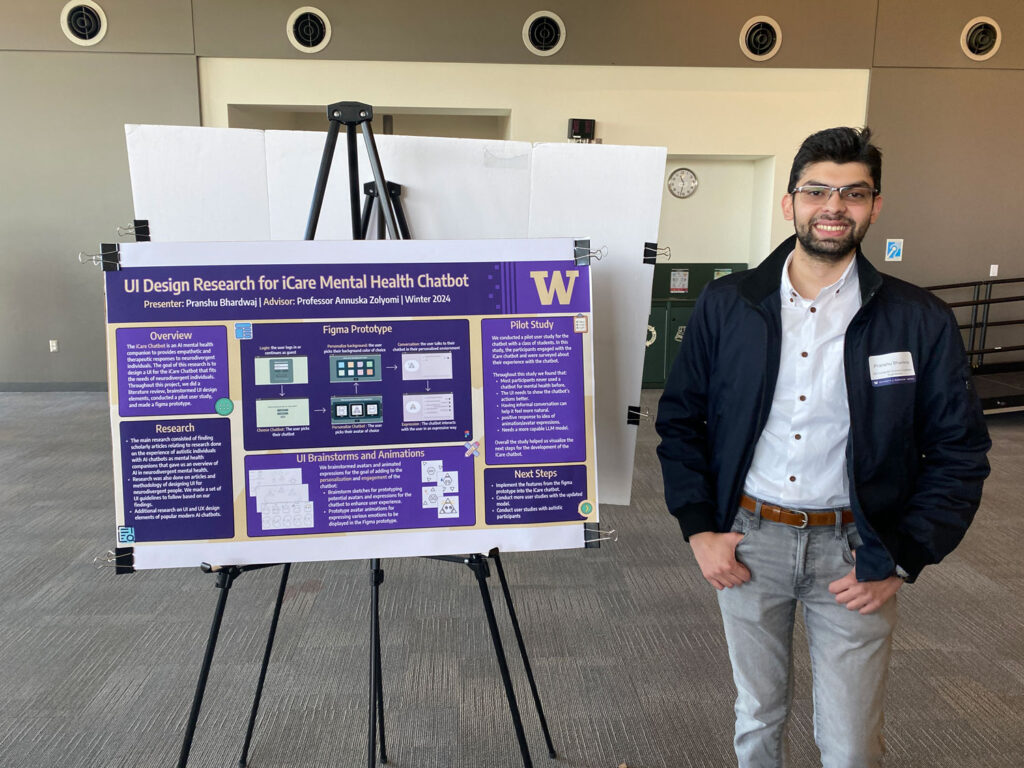
Tailoring a mental health chatbot to neurodivergent users
For his capstone, “UI Design Research for iCare Mental Health Chatbot,” Computer Science & Software Engineering major Pranshu Bhardwaj worked on user experience research for a mental health chatbot.
Led by Dr. Dong Si, associate professor in the School of STEM, iCare is a software development project using artificial intelligence that aims to support patients with mental health issues, as well as those who care for them. Bhardwaj first got involved in the project from a collaboration with his faculty adviser, Dr. Annuska Zolyomi, assistant professor in the School of STEM, whose IDEA Lab looked to provide research and development support specific to neurodivergent users.
“My research really looked at ways to enhance the user experience to make it more accessible,” Bhardwaj said. “AI is still an emerging field, and it needs a lot of work before it can get to a point where it provides proper support. When it comes to providing empathetic responses and expressions, I think we can achieve that with the current technology.”
Bhardwaj specifically focused his research on the user experience for people with autism. He reviewed literature from academic journals and tested popular AI chatbots to assess their interfaces. Through his research, Bhardwaj discovered the key role color and expressive animations play in the experiences of neurodivergent individuals.
Together with Zolyomi, he also conducted a pilot user study of the chatbot. Then, Bhardwaj put his research to use in creating a prototype that will be tested and improved upon by future IDEA Lab students.
Bhardwaj received the Best Poster Award for his research.
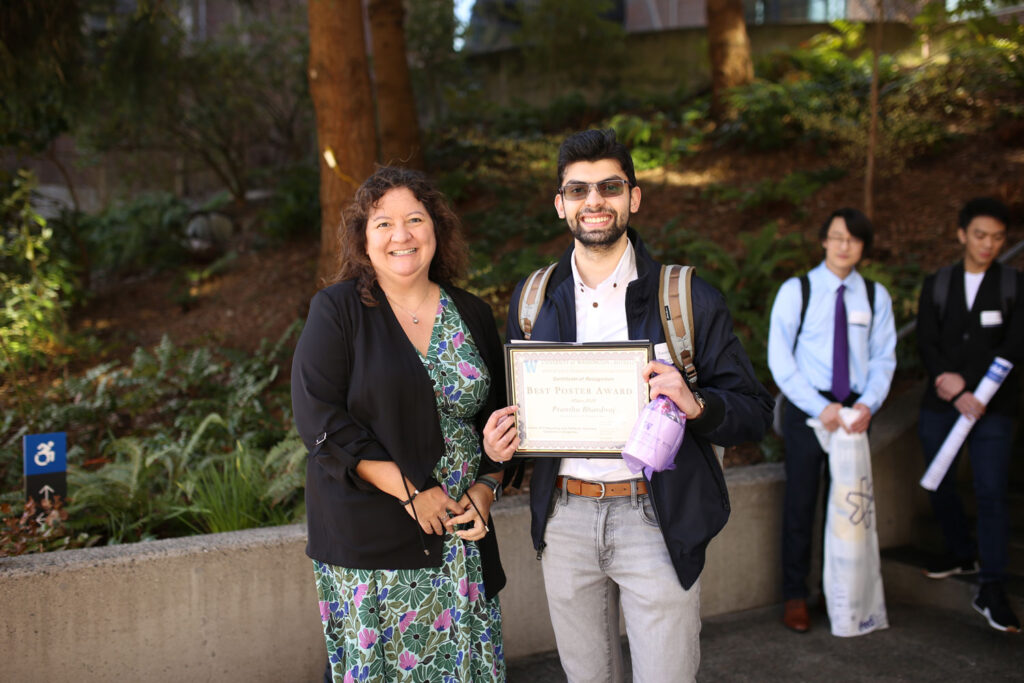
Personalizing skin care through a web application
Nessa Choi has a passion for skin care. A senior majoring in Applied Computing and minoring in Information Technology, Choi said she thinks about skin care as a hobby but decided to bring in into her schoolwork. For her capstone project, “PibuSkin: Elevating Skincare Regiments with a User-Centric Perspective,” she combined her computer skills with her interest in the beauty industry.
“I like going through social media and seeing how different people experience various products, but I also saw a problem with this space,” Choi said. “There’s so much marketing around skin care — and people pushing products forward without really testing it all the way but doing it just for the money or the prestige of the brand. I wanted to create something that was more user focused.”
Choi created a protype of a web application that provides both information and skin-care recommendations. In the application, users can browse products and filter results like a typical online retail environment. They can also complete an eight-question survey for personalized recommendations.
One of her motivations for creating the app, Choi said, is to empower consumers to align their skin care choices with their personal values. With an emphasis on sustainable products and other filtering options, she hopes it will allow users to make more informed purchasing decisions.
Choi plans to continue working on the prototype to incorporate additional filters for budget, ingredient types and other commonly sought features.
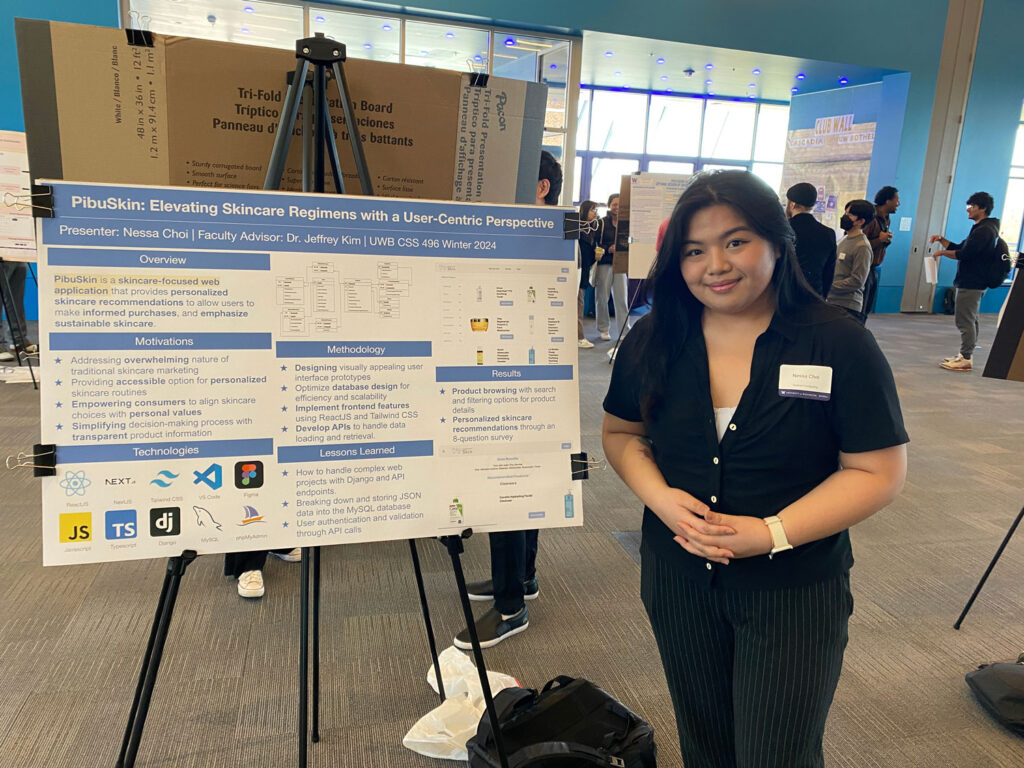
Designing a therapeutic agent for a rare mouth cancer
A senior majoring in Biology, John Adrian Aleta hopes to someday follow in his mother’s footsteps and become a dentist. For his capstone project, “Designing an Organic Molecule as a Therapeutic Agent for Buccal Mucosa Cancer,” Aleta put his interest in oral care to use.
The buccal mucosa is the inner lining of the cheeks. While cancer in the lining is rare, it can be highly dangerous because of its potential to spread to other parts of the body.
“I’m really interested in the mouth but specifically cancers of the mouth because I want to do surgery on them down the line,” Aleta said. “I figured this project would help me boost that interest further and maybe start something that would potentially lead to a treatment plan I could end up using on patients in the future.”
Using a computational growth algorithm, Aleta designed an organic molecule to inhibit the function of a protein targeted for its role in the growth and division of cells. While he was successful in designing a molecule, the next step in determining its efficacy would be to do research in a lab setting. Aleta hopes to continue working in this area.
“Because my mom is a dentist, I was exposed to oral health care from a young age. I’ve really noticed how there are a lot of inequalities in terms of how much it’s prioritized,” Aleta said. “I want to be that person to really push oral health to the forefront.”
I’m really interested in cancers of the mouth. I figured this project would help me boost that interest further and maybe start something that would potentially lead to a treatment plan I could end up using on patients.
John Adrian Aleta, senior, Biology
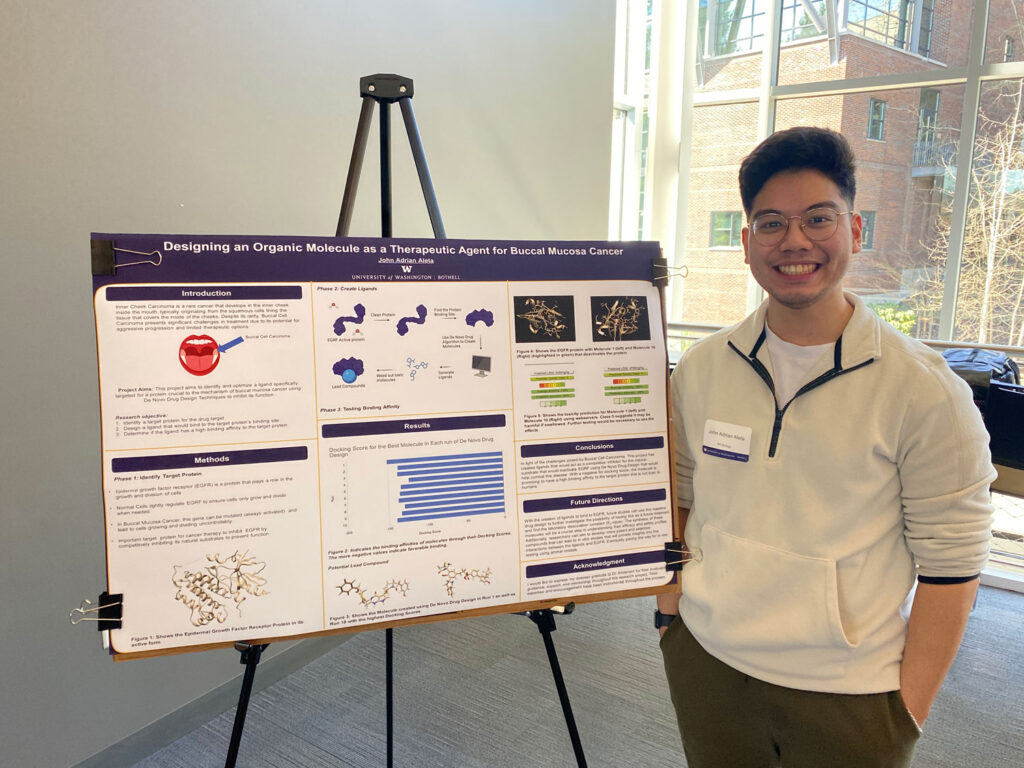
The closing of a chapter
For many students, the Undergraduate Capstone & Symposium marks the end of their undergraduate education, after which they move on to continue their education in graduate school or enter the workforce.
The projects represent the wide range of their work, completed under the direction of faculty advisers and community partners. From participating in groundbreaking research to search for cures to diseases such as Alzheimer’s to developing the latest digital tools, UW Bothell students aim to help push the needle on what is possible in STEM.
A complete list of the winter 2024 presentations can be found on this 2024 Undergraduate Capstone & Symposium webpage. These quarterly presentations are open to the public and can be found on theUW Bothell events calendar.
